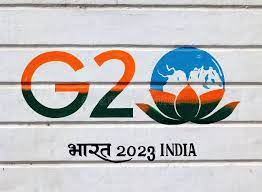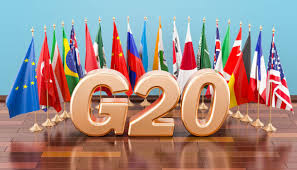The 18th G20 Heads of State and Government Summit in New Delhi is paramount regarding global diplomacy and economic collaboration. This summit encapsulates the culmination of a year-long series of discussions, debates, and engagements involving ministers, top officials, and representatives from civil society. This summit encapsulates the culmination of a year-long series of discussions, debates, and engagements involving ministers, top officials, and representatives from civil society. A pivotal moment in the international landscape, the G20 Leaders’ Summit is poised to chart the course for global priorities and cooperation. In this article, we delve into the essence and significance of this summit, the expected outcomes, and the impact it could have on international affairs. Download or read 18th G-20 Book: Click Here
Table of Contents
1. Understanding the G20: A Brief Overview

The Summit in New Delhi brought together global leaders to discuss crucial matters. The Group of Twenty, or G20, is an assembly of the world’s major economies and European Union representatives. Established in 1999 as a direct reaction to the financial circumstances, this organization came into being. After the crises of the late 1990s, the G20 aims to foster international financial stability and sustainable development. With its member countries collectively accounting for more than 80% of global GDP and 75% of international trade, the G20 substantially influences global economic policies.
2. The Annual G20 Processes: Building Up to the Summit

The exciting “Summit in New Delhi” brought leaders from around the world together to engage in meaningful discussions and address pressing global issues. Throughout the year, the G20 operates through ministerial and working group meetings. These gatherings provide a platform for in-depth discussions on various topics, ranging from finance and trade to climate change and technology. The insights and agreements formulated during these meetings laid the groundwork for the more prominent summit.
3.The G20 Leaders’ Declaration: A Manifesto of Commitments

A hallmark of the G20 Leaders’ Summit is the adoption of the G20 Leaders’ Declaration. Crafted after the summit, this declaration encapsulates the collective commitments of the member countries’ leaders. It outlines the priorities discussed and agreed upon during the preceding ministerial and working group meetings.
4. New Delhi: The Host of the 18th G20 Summit
As the host city of the 18th G20 Summit, New Delhi takes on immense responsibility. The city’s historical significance and modern infrastructure make it an ideal backdrop for this diplomatic convergence. The summit offers India a chance to proudly display its dedication to working together worldwide and its unwavering resolve to tackle urgent global issues.
5.The Global Implications: What’s At Stake?
“The G20 Summit in New Delhi brought together world leaders to discuss global economic challenges and cooperation.” The outcomes of the G20 Leaders’ Summit reverberate on a global scale. The commitments made in the declaration influence economic policies, trade agreements, and cooperation on climate change and sustainable development. The decisions taken by the world’s leading economies set the tone for international relations and have a direct impact on the lives of citizens around the world.
6. Fostering Multilateral Cooperation: A Need of the Hour

In a time characterized by intricate obstacles that surpass geographical boundaries, the significance of the G20 Leaders’ Summit becomes even more pronounced. The summit serves as a platform for leaders to engage in frank discussions, build trust, and find common ground. The emphasis on diplomacy and dialogue underscores the value of multilateral cooperation in navigating the intricacies of the modern world.
7.Strengthening Global Economic Resilience
One of the central themes of the G20 is economic resilience. The member countries recognize the interconnectedness of their economies and the need to respond to financial crises collectively. Discussions often revolve around strategies to enhance global economic stability, promote inclusive growth, and address inequalities.
8.Addressing Climate Change and Sustainability
Climate change and sustainable development are pressing concerns that transcend borders. The G20 Leaders’ Summit provides an avenue for leaders to discuss policies that mitigate the effects of climate change, transition to renewable energy sources, and promote sustainable practices. The decisions made at the summit hold the potential to reshape the global environmental landscape.
9.Technology and Innovation for the Future
In the digital age, technology and innovation are the driving forces behind economic progress. The G20 discussions encompass digitalization, technological advancements, and the ethical implications of new technologies. Collaborative efforts in these areas can shape the trajectory of technological development globally.
10.Conclusion: Charting a Collective Path Forward

The 18th summit of G20 leaders in New Delhi demonstrates the immense potential of global collaboration. As leaders converge to discuss and deliberate, the world watches with anticipation. The G20 Leaders’ Declaration that emerges from this summit will serve as a guidepost for addressing challenges, fostering economic prosperity, and embracing sustainable practices. In an increasingly interconnected world, the significance of this summit underscores the vital importance of unity, dialogue, and shared commitment to a better future for all.
